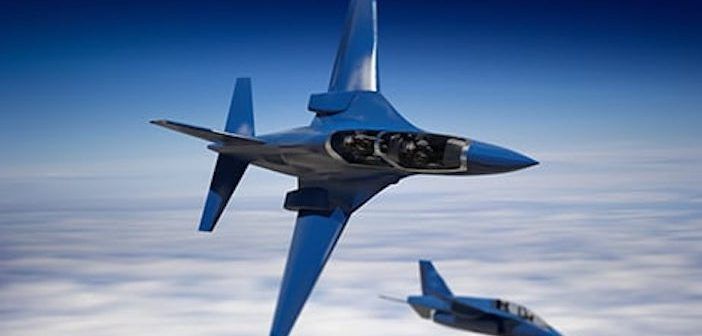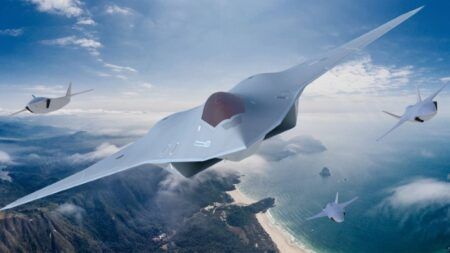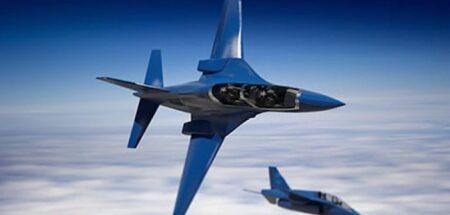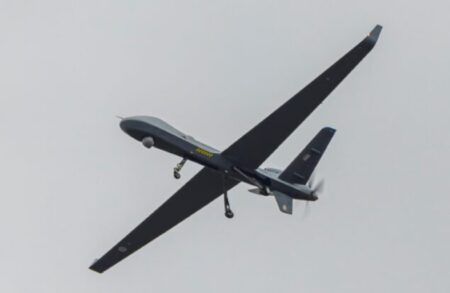Modular military jet developer Aeralis has opened its first permanent office in Bristol, UK.
Aeralis is developing two trainer jet aircraft, the first of which it has said will be ready by the mid-2020s, and the Aeralis-X acrobatic jet.
Aeralis aims to reduce the acquisition and maintenance costs of operating fighter trainers by 30% compared to conventional flight training systems with its modular approach, that it claims will provide an 85% commonality in aircraft parts within its three-aircraft family.
The Bristol site, which Aeralis is calling an “Enterprise Hub” and is its first permanent site, will house up to 40 staff, with space to expand in the future. It will operate as an office and design engineering space within which the company can work with suppliers and other partners during the initial stages of manufacturing and design integration.
Aeralis said that the facility is in the “heartland of British aerospace and defence manufacturing” and was chosen because of its good transport links and proximity to companies with which it already has relationships. These include consultancy Atkins, Rolls-Royce and the UK Government’s Ministry of Defence.
The establishment of a permanent site will also allow Aeralis to engage with the local community and foster skills development in the region through STEM programmes and collaborative projects, it added.
Aeralis’ founder and CEO Tristan Crawford said, “The opening of the Enterprise Hub marks a significant milestone in our development as a company, as it will allow us to accommodate our programme team together with our engineering team and our partners in the region to expand on the development of our innovative modular jet.”
Aeralis was founded in 2015. The advanced trainer jet features a swept wing design and will provide training for 6th generation fighter aircraft.
The basic trainer will be used to train pilots for 3rd or 4th generation combat aircraft and will be powered by a single low-bypass turbofan engine.
In September last year Aeralis and Rolls-Royce agreed to partner on the development of the propulsion system for the aircraft.





